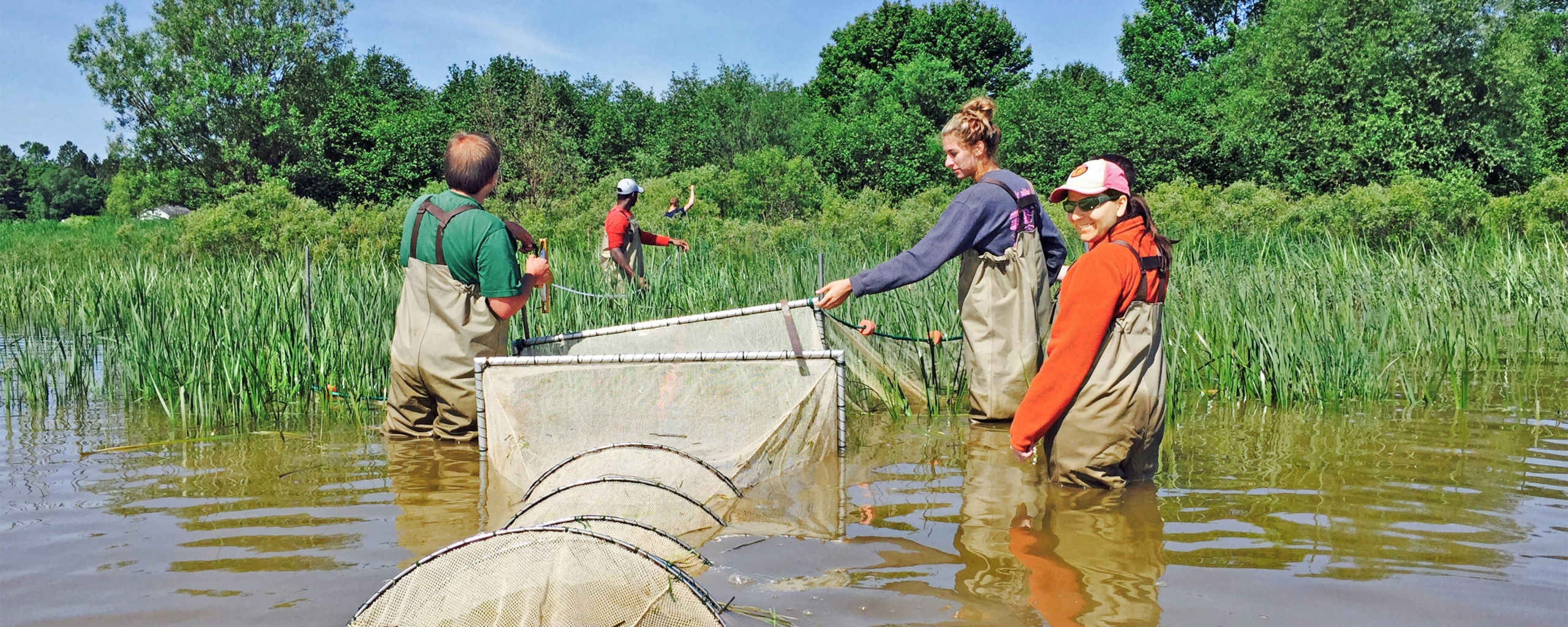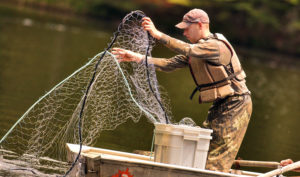Conservation Biology
Conservation Biology prepares students for careers where they can mitigate wide-ranging challenges
Our program prepares students for careers where they can make a contribution to mitigating wide-ranging challenges such as invasive species, altered landscapes, species extinctions, or the restoration of degraded aquatic and terrestrial ecosystems. We have a selection of rigorous field-based courses in:
- Watersheds
- Soils
- Forestry
- Ecology (general, fish, wildlife or plant)
- Organisms (mammalogy, ornithology, ichthyology, or entomology)
Combining this coursework with interdisciplinary courses in social dimensions, political science, sociology, business/economics, communication and GIS technology adds the breadth needed to integrate biological, economic, and policy issues in the formulation of sustainable solutions.
Students may choose as a capstone experience a summer semester internship working in a professional capacity in conservation biology, or a senior thesis research project.
Hands-On Research
Conservation Biology Degrees
Career Choices
- Conservation Biologist/Scientist
- Ecologist
- Endangered species/Non-game biologist
- Environmental Educator or Outreach Coordinator
- Environmental Scientist
- Field Biologist
- Fish or Wildlife Biologist
- Freshwater or Marine Biologist
- Naturalist or Interpreter
- Restoration Ecologist
- Wildlife Refuge Manager



